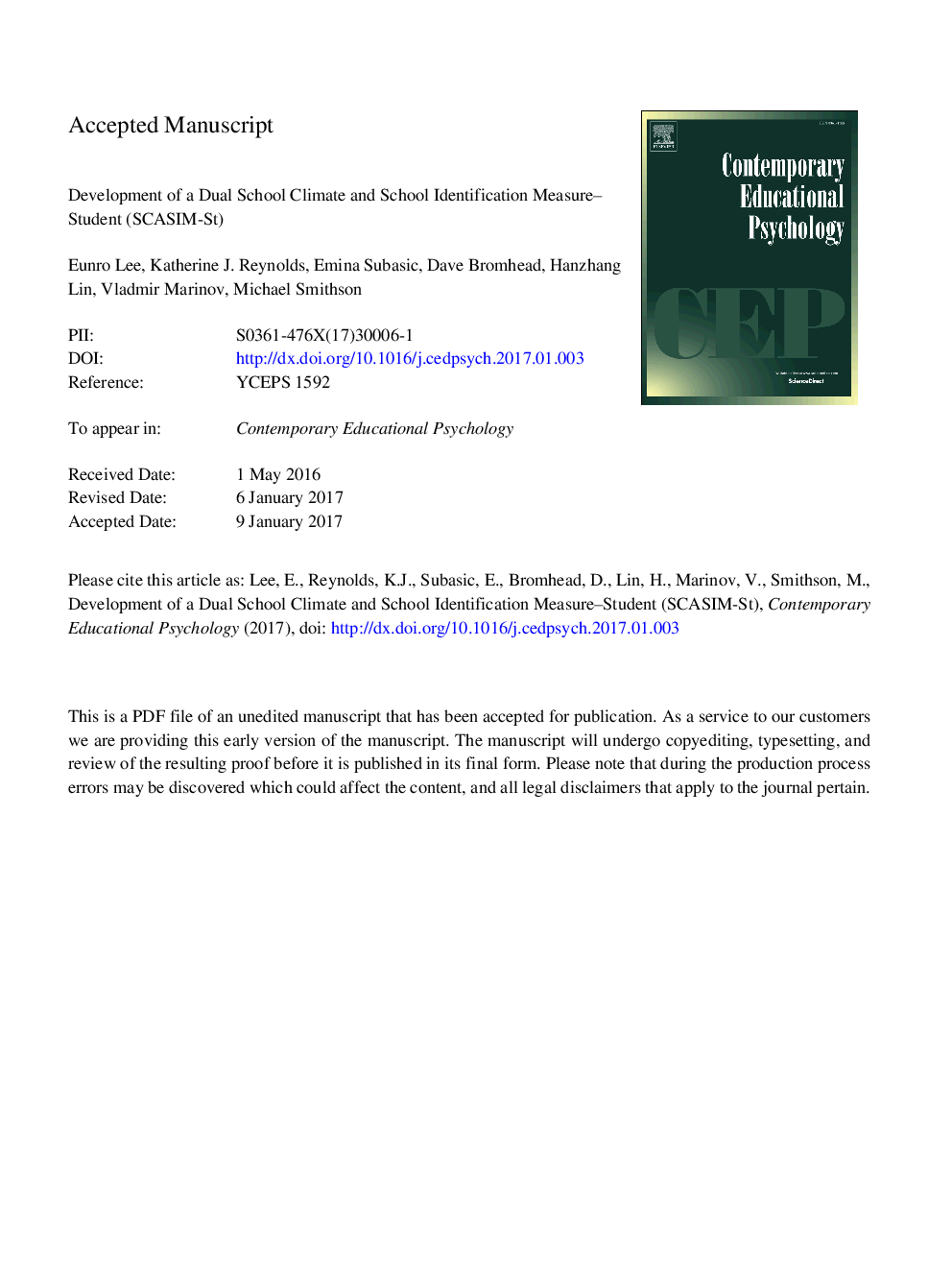| Article ID | Journal | Published Year | Pages | File Type |
|---|---|---|---|---|
| 4937893 | Contemporary Educational Psychology | 2017 | 76 Pages |
Abstract
Extensive but separate bodies of research in education concern the constructs of school climate and school connectedness/belonging. In the interests of advancing a more integrated approach, a new measurement tool is developed- the School Climate and School Identification Measure-Student (SCASIM-St). This scale builds on the Moos (1973) framework which assesses relationships, personal growth, and system management in schools. The social identity approach to group processes (Tajfel & Turner, 1979; Turner, Hogg, Oakes, Reicher, & Wetherell, 1987) is used to extend work on school connectedness and belonging through the inclusion of a measure of social identification. A range of methods across three studies are designed to assess the reliability and validity of SCASIM-St (NÂ =Â 7209, Australian grades 7-10 students). These include confirmatory factor analysis, test-retest analysis, and convergent validity (Study 1 and 2). Additionally measurement invariance tests for student sub-groups regarding gender, grade level, and non-English language, were employed in Study 3. It also included criterion validity analysis using multilevel models for the key outcome measures of students' academic achievement, well-being, and aggressive behaviors. All of these analyses indicate that SCASIM-St is an effective measure. Theoretical and practical implications as well as future directions are outlined.
Related Topics
Social Sciences and Humanities
Psychology
Applied Psychology
Authors
Eunro Lee, Katherine J. Reynolds, Emina Subasic, Dave Bromhead, Hanzhang Lin, Vladmir Marinov, Michael Smithson,
